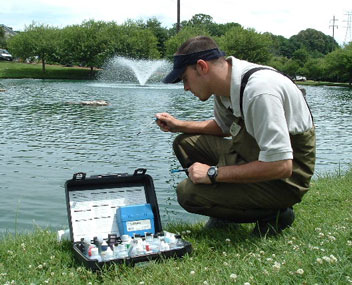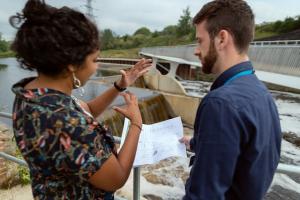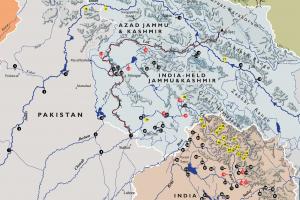Water Quality Analysis & Monitoring in Pakistan

Water Quality Monitoring in Rural Areas of Pakistan and Installation of Low Cost Water Conditioning and Filtration Units:
The main objectives of this project are to evaluate the quality of drinking water sources in rural areas, covering 24 districts (94 tehsils) in four provinces of Pakistan, and design and install water conditioning and filtration units in the problem areas, in collaboration with local governments to ensure safe supply of drinking water to the rural population.
The water quality analysis results of more than 10,000 samples collected from 48 tehsils have shown that on average 85% samples are bacteriological unsafe. The concentrations of TDS, and turbidity were very high in majority of the water samples, whereas, in some areas of Punjab and NWFP, nitrate concentrations were found beyond permissible limits.
Eight water conditioning and filtration plants have been installed in Islamabad, Fateh Jang, Sialkot, Sheikhupura and Bahawalpur. Water sample collection for analysis (L) A low cost filtration plant installed in Sahiwal (R)
Arsenic Monitoring and Mitigation in Pakistan:
Results of joint research studies by PCRWR, UNICEF, Local Governments (2004) and National Water Quality Monitoring Programme (2002-06), revealed the presence of arsenic in the Southern Punjab and Central Sind. This project was initiated to monitor the presence of arsenic in all the districts of Punjab and Sind provinces. Sampling and analysis for arsenic is completed in 31 districts of Sindh and Punjab. In Punjab Province, 38.28% of samples are found beyond 10 ppb and considered unsafe. In Sindh province, 11.16% of samples are found beyond 10 ppb and evaluated as unsafe. Training on arsenic analysis, data recording and operation of arsenic removal technologies is imparted to staff of Local Govt. Punjab and Sindh and Female Master Trainers of NGOs. PCRWR has developed and evaluated low cost arsenic filters, the manufacturing on commercial scale is in progress. These filters will be provided in the problem areas for arsenic mitigation.
Provision of Safe Drinking Water-Khushal Pakistan Programme:
This mega project was initiated in 2006. The project focuses on six important activities i.e. establishment of 24 water quality testing laboratories in different regions of Pakistan, installation of 24 water filtration plants, assessment survey of water supply schemes, capacity building of water supply agencies, water quality monitoring and mass awareness.
The PCRWR has upgraded already established six water quality laboratories at Islamabad, Peshawar, Lahore Bahawalpur, Tandojam, and Quetta with the latest equipment. Whereas, 18 laboratories are established at Faisalabad, Gujranwala, Sargodha, Sialkot, Sahiwal, Multan, Mianwali, Dera Ghazi Khan, Nawab Shah, Sukkur, Karachi, Loralai, Ziarat, Dera Ismail Khan, Abbotabad, Muzaffarabad, Gilgit, Khyber Agency. Assessment survey and water quality monitoring of 3200 schemes is completed. Under the capacity building program in water quality monitoring, 15 courses have been conducted for water supply agencies of WASA, Public Health Engineering Department and Local Governments of Punjab, NWFP, Northern Areas, FATA and AJ&K, 26 courses will be completed by 2008.












